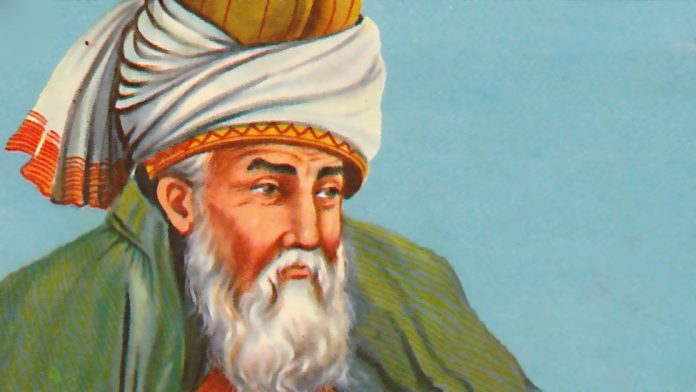By Hina Kiyani
RAWALPINDI: Cultural Councilor of the Embassy Islamic Republic of Iran, Ehsan Khazaei on Friday paid tribute to the great mystic Persian poet Maulana Jalal-al-Din Muhammad Rumi on his 815th birthday and said his poetry elevated man’s fear of death while calling human demise as a new beginning of his life.
Addressing special ceremony held at the Cultural Consulate of the Embassy of the Islamic Republic of Iran to eulogise the great Persian poet here which was participated by students, media and academia, he said the verses and knowledge of Maulana freed man from the fear of death as he preached through his poetry that death was the start of man’s life and not the end. So one should not fear death rather wait for it as a new beginning of his life.
Maulana Jalal-al-Din Muhammad Rumi was born on September 30, 1207 in Balkh (present day Afghanistan) which was part of the ancient Persian empire at that time.
Ahsan Khazaei thanked the participants for attending the class of Masnavi, the famous poem of Maulana being composed in Konya, and said it was an opportunity of increasing ones knowledge about the teachings of Maulana while attending this platform. The Cultural Councilor said, “Maulana was born in Balkh but the Afghans, Turks and others claim him as their national poet. But I want to mention here that such personalities are universal not earthly.
It’s not a matter of concern for us rather he was such a great personality that his exhortations through his words are applicable in our practical life.”
He underlined that The entire verses of Masnavi and Manavi highlighted moral and ethical values that were equally adoptable in the lives of present time humans.
“Allama Iqbal Lahori claimed himself as the devotee of Rumi and called him his spiritual teacher. Iqbal derived his motivational and revolutionary poetry from Maulana’s thoughts and advised people to learn from Maulana.”
The Cultural Councilor also recited verses of Maulana that meant love of God would remain and rest will be nothing. He said that the Persian verses recited, learn, and explained at the class of Manavi were acting as a cultural bridge between Iran and Pakistan. “It helps the Pakistani people and Iranians to learn each other’s culture and develop a connection between the two nations.”
He also presented the book on Persian Literature written and compiled by Dr Arif Noushahi to the participants which was published by the Center for Language Research Republic of Iran.
Prof Dr Muzzaffar Kashmiri held the class of Masnavi and taught the poetry of Maulana Rum to the participants. He informed that the class was being held for the past five years on a fortnightly basis.
He remarked that the book of Persian literature was being given to the students as souvenir by the Centre.






